Politics
A path to Ukrainian peace: Beyond exaggerated expectations
Published
6 months agoon
By
Ekwutos BlogThe protracted, attritional war that Russia has waged against Ukraine for nearly three years has led analysts and political leaders alike to ponder how to end this war as soon as possible and achieve a lasting peace.
Increasingly, proposals are emerging to apply a model similar to the one implemented in Germany after World War II. Adapting to Ukraine would mean that it would never relinquish the annexed territories, and the West would never recognise these territories as Russian.
However, Ukraine would accept the reality that it cannot reclaim the occupied territories through force and would commit to a non-violent approach.
In exchange, Ukraine would demand concrete, not merely symbolic, security guarantees that Russia would not repeat its aggression against Ukraine.
Just recently, both Czech President Petr Pavel and outgoing NATO Secretary General Jens Stoltenberg have expressed themselves along a similar vein. So, what is preventing the implementation of such a solution?
I would say that a problem lies in the exaggerated and unrealistic expectations held by Ukrainian citizens and a significant part of the democratic world.
This is a common phenomenon within the political sphere. Unrealistic expectations can be inadvertently cultivated not only by populists but also by well-intentioned politicians who make excessive promises to their constituents.
Such expectations pose a significant risk, not merely to the politicians who propagate them, but more importantly to the communities they represent, as these communities may find themselves on a perilous path with limited options for reversal.
Can we really make Putin kneel?
It appears that Ukraine has experienced precisely this phenomenon. The initial Ukrainian successes, including the defence of Kyiv against a blitzkrieg (a rapid invasion by Russian airborne troops at the outset of the war), the defence of Kharkiv, and the subsequent daring counteroffensive, led both Ukrainian President Volodymyr Zelenskyy and parts of the West to experience euphoria and to foster expectations of a Ukrainian victory over Russia, with Western support.
These expectations included the notion of expelling Russian forces from all occupied territories, including Crimea.
Talk of the West’s vast economic and military superiority also contributed to the illusion that, eventually, Putin will kneel.
Russian soldiers guard a pier where two Ukrainian naval vessels are moored, in Sevastopol, March 2014 AP Photo
The West is also to blame for creating these exaggerated, unrealistic expectations. Some leaders hoped to persuade Putin to back down or at least suspend his operation. In the case of Ukraine, the granting of EU candidate status was considered by many to be something that was not even on the table.
Talk of the West’s vast economic and military superiority also contributed to the illusion that, eventually, Putin will kneel.
However, it seems to me that President Zelensky also made a key mistake by not involving the Ukrainian parliamentary opposition in solving the problem.
On the contrary, there have been reports here and there that Ukrainian border guards have not allowed the leader of the opposition, former President Petro Poroshenko, to leave Ukraine.
The mayor of Kyiv, Vitali Klitschko, has repeatedly expressed his criticism of the president. There are no known joint negotiations by the wider Ukrainian political leadership to seek a common solution to the key issues of the war.
I believe Zelenskyy should do this
And that’s how misinformation spreads. For example, the idea that these are various nationalist, if not outright fascist, units of Ukrainian fighters who are preventing President Zelenskyy from making any compromises.
In reality, it is the Ukrainian president himself who has manoeuvred himself into a position where the opposition will not proactively help him, and his voters will have a hard time understanding a potential change of approach to ending the war and thus will also have a hard time accepting any compromise.
He should invite the parliamentary opposition to the negotiating table, lay his cards on it and try to find a broad political consensus among Ukrainian leaders in an open discussion on the future arrangement of relations with Russia.
Therefore, I believe that the president of Ukraine should change his approach, first and foremost towards the representatives of the Ukrainian political opposition.
Instead of the pompous global peace summits that are doomed to failure in advance, instead of the “victory plans” that President Zelenskyy is presenting to world leaders (which, it seems, are just a new version of older demands), he should organise a peace summit at home, in Kyiv.
RelatedHe should invite the parliamentary opposition to the negotiating table, lay his cards on it and try to find a broad political consensus among Ukrainian leaders in an open discussion on the future arrangement of relations with Russia.
Agreeing on necessary compromises
Undoubtedly, the price for such a change in approach could be a demand from the opposition to participate in the governance of Ukraine. There may also be other political demands.
In any case, the upside of such demands would be substantial: a broad political consensus among the Ukrainian political elite, which would begin to address Ukrainian citizens in a common, unified language.
Only in this way is it possible to agree to the compromises that are necessary to end the war and establish a sustainable peace. At the same time, these compromises in no way mean capitulation or resignation to a part of Ukrainian territory.
Mikuláš Dzurinda is president of Wilfried Martens Centre for European Studies, the EPP-affiliated think-tank, and former prime minister of Slovakia.
You may like
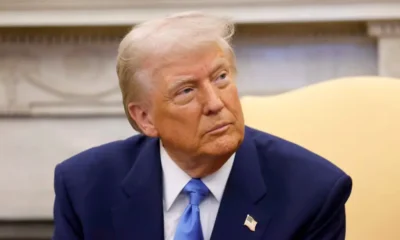

Trump moves to restore some terminated foreign aid programmes
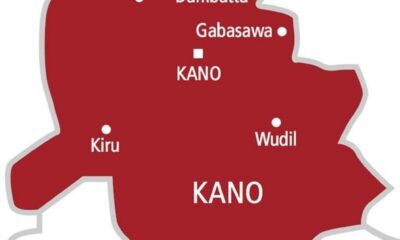

Two women drown, die in Kano puddle


Congo Frees Jailed Americans After Failed Coup, Hands Them Over to U.S.
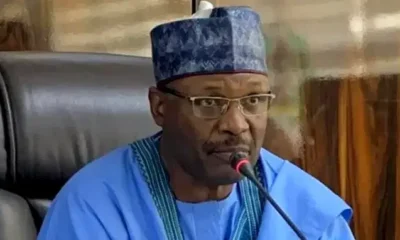

INEC Chairman, Mahmood not sacked – Spokesman
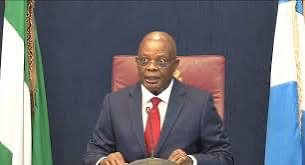

BREAKING: Rivers State Sole Administrator Vice Admiral Ibot-Eke Ibas Rtd Appoints Local Government Sole administrators And Reconstituted RISIEC Board.
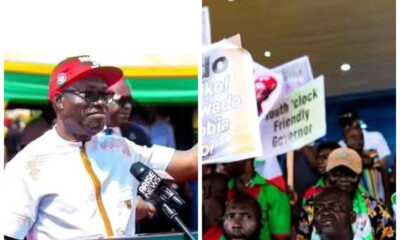

Gov Soludo welcomes Ifeanyi Ubah’s supporters into APGA, promises to immortalize Late Senator.
Politics
Trump moves to restore some terminated foreign aid programmes
Published
26 minutes agoon
April 9, 2025By
Ekwutos Blog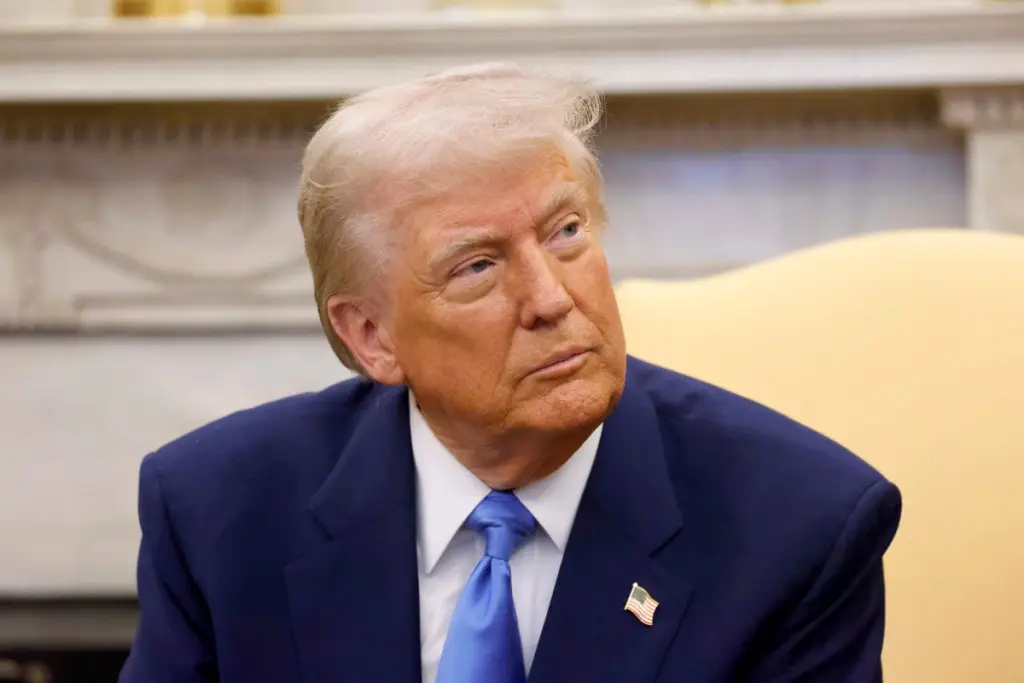
US President Donald Trump on Tuesday moved to reinstate at least six recently canceled US foreign aid programs for emergency food assistance.
The quick reversal of decisions made just days ago underscored the rapid-fire nature of Trump’s cuts to foreign aid.
It has resulted to programmes being cut, restored then cut again, disrupting international humanitarian operations.
USAID Acting Deputy Administrator Jeremy Lewin, who has previously been identified as a member of billionaire Elon Musk’s Department of Government Efficiency, DOGE, asked staff in an internal email to reverse the terminations.
Lewin also asked to restore awards to the World Food Programme in Lebanon, Syria, Somalia, Jordan, Iraq and Ecuador.
The administration has also reportedly resumed four awards to the International Organization for Migration in the Pacific region,
“Sorry for all the back and forth on awards. There are a lot of stakeholders and we need to do better about balancing these competing interests — that’s my fault and I take responsibility,” Lewin said.
Ekwutosblog reported on Monday that the Trump administration had ended life-saving aid programmes for more than a dozen countries including Afghanistan, Yemen, Somalia and Syria, totaling over $1.3 billion.
Stand Up For Aid, an advocacy group of current and former US officials said World Food Programme contracts canceled on Lewin’s orders last weekend for Lebanon, Syria, Somalia and Jordan totaled more than $463 million.
Many of the terminated programmes are said to have been granted waivers by US Secretary of State Marco Rubio following an initial round of cuts to foreign aid programs.
As of the time of filing this report, the State Department has not commented about restoring the awards.
Politics
INEC Chairman, Mahmood not sacked – Spokesman
Published
54 minutes agoon
April 9, 2025By
Ekwutos Blog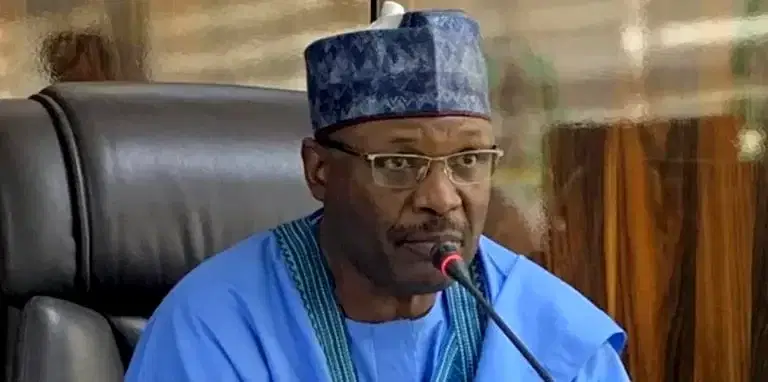
By Omeiza Ajayi, ABUJA
The Independent National Electoral Commission, INEC, has disclaimed social media reports that its Chairman, Prof. Mahmood Yakubu, has been sacked by President Bola Tinubu.
A viral WhatsApp message had indicated that Mahmood was sacked and replaced with one Prof. Olamilekan.
“INEC Chairman Prof. Mahmud Yakubu has been replaced with Prof. Bashiru Olamilekan by President Tinubu,” the message, which had no attribution, read.
In response to a message from Vanguard, the Chief Press Secretary CPS to the INEC Chairman, Mr Rotimi Oyekanmi, simply said: “Please, disregard. It is not true.”
Yakubu, who is rounding off his second tenure in office, is expected to exit the system towards the end of the year.
The process of appointing an INEC chairman is the President nominating a candidate and forwarding his particulars to the Department of State Services, DSS, for profiling.
After such screening, the President thereafter takes the name to the National Council of State for its advisory review. Based on the outcome, the President sends the name to the Senate for screening and confirmation.
Presidency, too
The Presidency also debunked the widespread report claiming that President Tinubu has sacked Professor Mahmood Yakubu, the INEC chairman.
The Senior Special Adviser to the President on Digital and New Media, O’tega Ogra, described the news as false.
“The Nigerian public should disregard any fake news making the rounds about the replacement of the INEC Chairman.
“Any such announcement will come from the SGF’s office or any other appropriate official source,” Ogra wrote.
Politics
BREAKING: Rivers State Sole Administrator Vice Admiral Ibot-Eke Ibas Rtd Appoints Local Government Sole administrators And Reconstituted RISIEC Board.
Published
2 hours agoon
April 9, 2025By
Ekwutos Blog
Vice Admiral Ibot-Ete Ibas, the newly appointed Sole Administrator of Rivers State, has indeed made some key appointments.
As the administrator, he has appointed local government sole administrators and reconstituted the Rivers State Independent Electoral Commission (RISIEC) board.
This move is part of his efforts to oversee the state’s affairs, following President Bola Tinubu’s declaration of a state of emergency in Rivers State due to persistent political crisis and instability.

Local Government Sole Administrators: Ibas has appointed administrators to manage the local governments, ensuring effective governance and stability at the local level.
RISIEC Board: The reconstituted board will oversee electoral processes in the state, ensuring fairness and transparency.
As a seasoned naval officer and diplomat, Vice Admiral Ibas brings his expertise to the role.
His background includes serving as the 22nd Chief of Naval Staff and Nigeria’s Ambassador to Ghana.
His experience will likely shape his approach to managing the state’s affairs and addressing the current challenges.

Trump moves to restore some terminated foreign aid programmes

Two women drown, die in Kano puddle

Congo Frees Jailed Americans After Failed Coup, Hands Them Over to U.S.
Trending

 Trending6 months ago
Trending6 months agoNYA demands release of ‘abducted’ Imo chairman, preaches good governance
- Business6 months ago
US court acquits Air Peace boss, slams Mayfield $4000 fine

 Politics6 months ago
Politics6 months agoMexico’s new president causes concern just weeks before the US elections
- Entertainment6 months ago
Bobrisky transferred from Immigration to FCID, spends night behind bars
- Entertainment6 months ago
Bobrisky falls ill in police custody, rushed to hospital

 Politics6 months ago
Politics6 months agoRussia bans imports of agro-products from Kazakhstan after refusal to join BRICS

 Politics6 months ago
Politics6 months agoPutin invites 20 world leaders
- Politics1 year ago
Nigerian Senate passes Bill seeking the establishment of the South East Development Commission.


